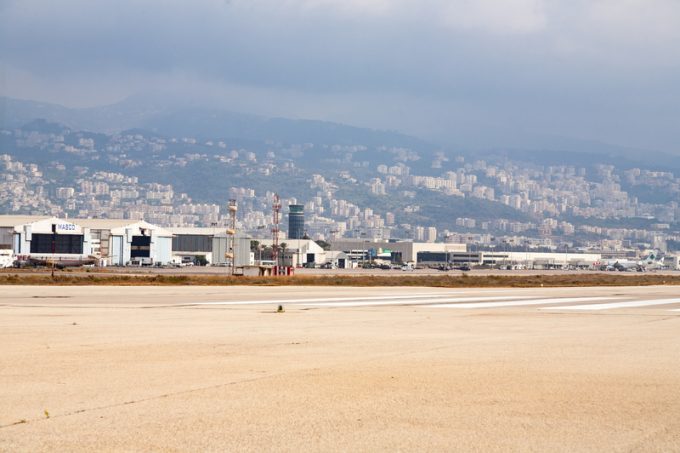Air cargo capacity squeeze could linger 'until the end of the decade'
Air cargo’s capacity shortage “will not be resolved any time soon”, and could linger “until ...
PLD: REBOUND MATTERSAMZN: MULTI-BILLION LONG-TERM MEXICO INVESTMENTDSV: WEAKENING TO TWO-MONTH LOWSKNIN: ANOTHER LOW PG: STABLE YIELDAAPL: GAUGING EXPECTATIONSXOM: GO GREEN NOWKNIN: BOUNCING OFF NEW LOWS HON: BREAK-UP PRESSURECHRW: UPGRADESZIM: LAGGARDFWRD: LEADINGMAERSK: OPPORTUNISTIC UPGRADETSLA: GETTING OUTDSV: DOWN BELOW KEY LEVELLINE: DOWN TO ALL-TIME LOWS
PLD: REBOUND MATTERSAMZN: MULTI-BILLION LONG-TERM MEXICO INVESTMENTDSV: WEAKENING TO TWO-MONTH LOWSKNIN: ANOTHER LOW PG: STABLE YIELDAAPL: GAUGING EXPECTATIONSXOM: GO GREEN NOWKNIN: BOUNCING OFF NEW LOWS HON: BREAK-UP PRESSURECHRW: UPGRADESZIM: LAGGARDFWRD: LEADINGMAERSK: OPPORTUNISTIC UPGRADETSLA: GETTING OUTDSV: DOWN BELOW KEY LEVELLINE: DOWN TO ALL-TIME LOWS

Israel’s assault on Lebanon has left the country bereft of airfreight capacity, its sole airline struggling to service demand and charter companies unwilling to plug the gaps.
Mourad Aoun, CEO of distribution firm The Net Global, which has branches in Lebanon, said regional supply chains’ capacity to do business had been “significantly impacted” by the attacks in the south and against Beirut.
“We have a serious problem sourcing capacity into Beirut as there is only Middle East Airlines (MEA) servicing the airport,” Mr Aoun told The Loadstar.
“Charter carriers are not willing to provide additional capacity and service [the country’s only gateway] because of the insurance difficulties, which has made it impossible to import goods, especially medical supplies.”
With Israel having stepped up attacks on the Lebanese capital, there are increasing calls internationally to see the airport protected.
It was targeted during Israel’s 2006 war with Lebanon, but has handled a wave of aid shipments from France and Qatar in recent weeks. Indeed, Qatar’s minister of state for international cooperation, Lolwah Al-Khater, said Beirut Airport was “the only passage for humanitarian aid”, and safeguarding it was “an absolute necessity”.
Matthew Hollingworth, Lebanon director of the World Food Programme, added: “It’s important the airport remains open. It’s absolutely critical the ports remain open. And it’s also critical that the overland corridors into Lebanon remain open”.
Mr Aoun said “until now” the airport and Beirut port had “been spared”, but with a reduction in airfreight capacity the country has found itself contending with delays and shortages.
And, with Lebanon and some of its neighbours, reliant on imports for necessities like food and fuel, the intensification of strikes is only likely to see the number and severity of these issues surge, he said, with businesses seeing major cuts in activity.
“Security risks to people in the areas being bombed has resulted in millions being displaced from cities and villages, with the south of Lebanon turned into a war zone,” he said.
“In areas close to the conflict zones, employees face challenges going to their jobs under such conditions. Destruction is everywhere, we have at least 50 employees whose houses have been destroyed.”
Listen to today’s News in Brief podcast, covering rates; airfreight; and the Gemini alliance – among other things. And all in 12 minutes.
Comment on this article